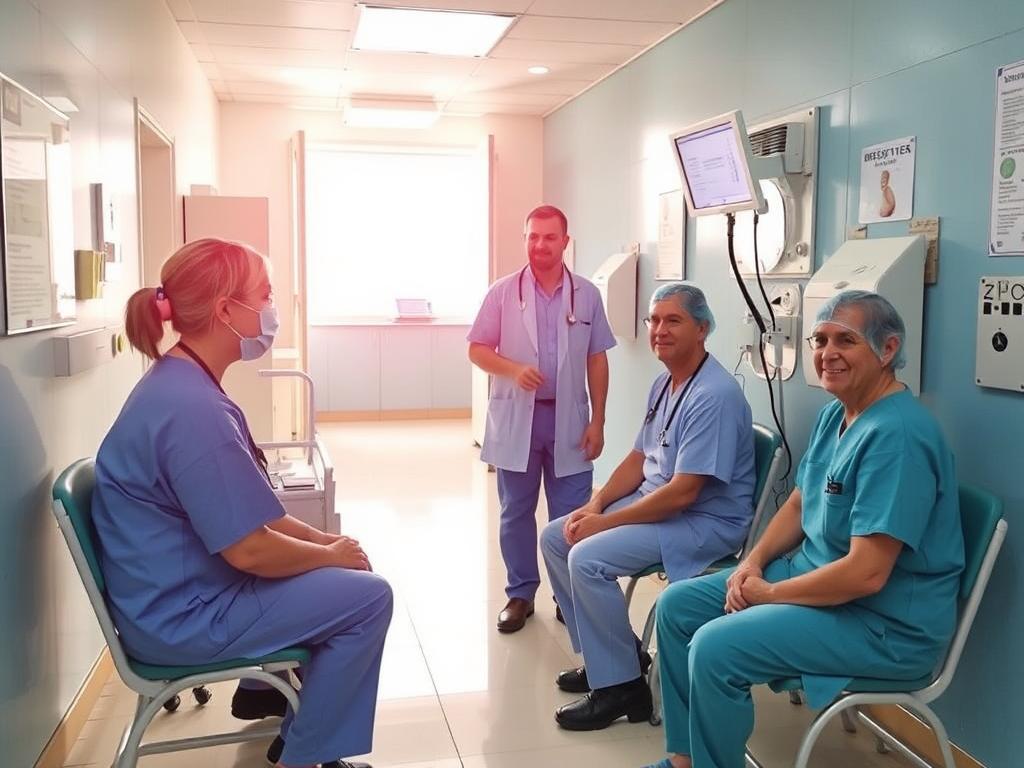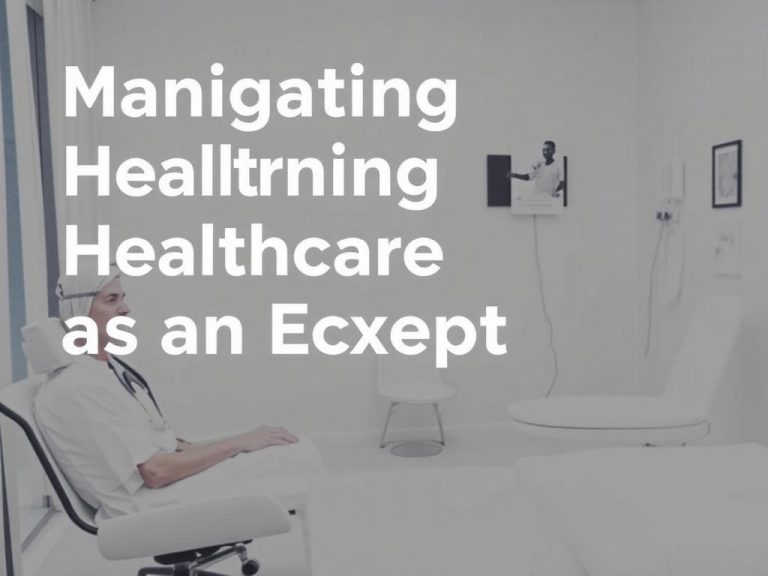Healthcare System in Cyprus for Expats
Relocating to Cyprus brings many exciting opportunities, especially when considering the island’s warm climate and Mediterranean lifestyle. Yet for expats, understanding the healthcare landscape is typically high on the priority list. Whether you’re moving through Cyprus residency by investment or settling down with family, grasping the nuances of the Cyprus healthcare system can ease the transition and secure peace of mind. The country’s medical infrastructure offers an intriguing blend of public and private options, shaped by evolving legislation and a growing international community.
In this detailed guide, I’ll walk you through the essentials of medical care in Cyprus for expats—from navigating public healthcare services to finding the right medical insurance Cyprus residents rely on. Additionally, we will cover the role of Cyprus hospitals and how healthcare provisions differ for locals and foreigners.
Overview of the Cyprus Healthcare System
Cyprus maintains a healthcare system anchored by a combination of public and private providers. Over recent years, the government has undertaken substantial reforms, particularly with the implementation of the General Healthcare System, known as GESY, designed to offer universal coverage to all legal residents. This shift aimed to address the previously fragmented system, where public and semi-private care operated in parallel.
The public healthcare sector in Cyprus remains the backbone of medical care Cyprus expats and residents can access, especially through GESY, which officially launched in 2020. This system brings together a network of general practitioners, specialists, and hospitals to provide comprehensive services funded mainly through social insurance contributions.
At the same time, private healthcare flourishes, catering to those seeking swifter appointments, more specialized treatments, or multilingual medical staff. The private sector also attracts many foreign patients, especially for elective procedures. Consequently, expats quickly learn to weigh the benefits of the two systems when making health decisions.
Colloquially, GESY transformed the Cyprus healthcare system by making medical care more accessible and standardized across public providers for residents.
Accessing Public Medical Services in Cyprus
Healthcare Cyprus residents receive through GESY marks a significant change from previous arrangements. The system covers general medical consultations, specialist visits, diagnostic tests, hospital care, maternity services, and even rehabilitation. Funding comes from employer, employee, and government contributions, effectively pooling resources to guarantee a baseline of care for everyone registered.
Registering with GESY involves choosing a general practitioner who acts as the gateway for further specialist referrals. Many expats prioritize registering immediately upon arrival, as using GESY services drastically reduces out-of-pocket expenses. Without GESY registration, public health services can demand full payment upfront.
For chronic illnesses or emergency care, Cyprus hospitals within the public system provide 24/7 service. The public hospital network has gradually improved infrastructure and expanded services, although some patients still find wait times longer compared to private alternatives.
| Service | Coverage under GESY | Remarks for Expats |
|---|---|---|
| General Practitioner Visits | Fully covered with registration | Essential first step after arrival |
| Specialist Referrals | Covered when referred by GP | Requires GP gatekeeping |
| Hospital Care (Public) | Coverage includes emergency, inpatient, outpatient | Wait times can vary |
| Diagnostics & Imaging | Covered after GP or specialist approval | Availability growing steadily |
If you qualify as a legal resident, enrolling in GESY means most medical costs are subsidized, cutting financial worries when illness strikes.
Private Healthcare and Its Appeal to Expats
Despite the strengths of public medical care in Cyprus, many expats prefer private healthcare for its convenience and flexibility. Private clinics and hospitals offer shorter waiting periods, a broader range of advanced medical technologies, and often more multilingual staff. This is especially true in urban centers like Nicosia, Limassol, and Larnaca, where private medical facilities have a strong presence.
Medical insurance Cyprus residents obtain often focuses on private coverage to bypass public system delays or gain access to elective treatments that may not be promptly available otherwise. International health insurance plans are popular among expats, offering coverage that extends beyond Cyprus for travel or emergency medical evacuation.
Choosing private medical care usually means paying upfront, though many insurance policies facilitate direct billing or reimbursement. Private hospitals range from smaller specialized clinics to full-service institutions with surgical units and maternity wards.
This option is notably appealing for those who want personalized care, language convenience, or treatments not yet credited fully to GESY. However, costs can be substantially higher, so balancing private care expenses with insurance coverage is critical.
Key Features of Private Cyprus Hospitals
- Advanced diagnostic and surgical capabilities
- Multidisciplinary specialist teams
- Patient-centered services with shorter wait times
- Direct billing arrangements with many insurers
- International patient services for expats and tourists
Private healthcare in Cyprus offers speed and comfort—but it comes at a price often offset by appropriate medical insurance.
Understanding Medical Insurance in Cyprus
Medical insurance Cyprus residents need varies widely depending on residency status, personal health goals, and willingness to pay for private care. While GESY covers the public system, private insurance fills critical gaps, such as dental care, optical services, private room hospitalization, or access to non-covered medications and therapies.
Expatriates moving under schemes like Cyprus residency by investment will often purchase private health insurance both before and after arrival. This is to ensure uninterrupted care and to bridge the transition period prior to full GESY registration. Many insurers cater to expats with tailored plans, often including emergency evacuation or repatriation coverage.
Some employers provide group health insurance as part of compensation packages, but many expats opt for individual policies due to personal preferences or specific health needs. Monthly premiums depend on age, pre-existing conditions, chosen coverage, and deductible levels.
Shopping for the right medical insurance involves comparing provider reputations, claim procedures, coverage extents, and network hospitals. For families, adding dependents or maternity benefits may influence choices significantly.
| Insurance Type | Typical Coverage | Considerations for Expats |
|---|---|---|
| Public (GESY) | Basic medical care via public system | Mandatory registration, limited private coverage |
| Private Health Insurance | Extended coverage including private hospitals | Costs vary widely; speeds up access |
| International Insurance | Worldwide coverage and evacuation services | Ideal for mobile expats and frequent travellers |
Effective medical insurance acts as a safety net, turning Cyprus’ mixed healthcare system into a reliable, flexible resource for expats.
Special Considerations for Expats in Cyprus
Expats must navigate several particular challenges when addressing medical care in Cyprus. Language can be one hurdle, especially in the public system where not all staff speak fluent English or other foreign languages. Fortunately, many private practitioners cater specifically to international patients, offering multilingual support.
Understanding the paperwork and registration processes is also essential since access to GESY requires legal residency documentation. Expats holding Cyprus residency by investment permits benefit from streamlined access to both healthcare registration and services, but should not delay any administrative steps.
As a Mediterranean island, Cyprus also comes with region-specific health concerns, such as sun exposure risks and seasonal allergies. Familiarity with local health advisories and vaccine recommendations can safeguard wellbeing.
Lastly, emergency medical care is well-organized but somewhat decentralized. For urgent situations, expats should know the locations of the nearest public Cyprus hospitals and how private emergency clinics operate.
Tips for Expats: Navigating Health Care in Practice
- Register with GESY soon after obtaining residency
- Maintain valid private insurance until GESY registration is complete
- Identify trusted private clinics for rapid specialist consultations
- Learn emergency numbers and hospital locations ahead of time
- Keep medical records accessible and updated
Preparation and proactive steps ensure expats receive timely, quality medical care, minimizing surprises in a new health environment.
How Cyprus Hospitals Play a Role in Healthcare Provision
Cyprus hospitals form the critical nodes of both public and private healthcare delivery. Public hospitals, managed by the Ministry of Health or local authorities, serve as mainstay institutions providing routine, emergency, and specialized treatments. They house departments ranging from cardiology to orthopedics and maternity wards.
Private hospitals often complement public services by offering advanced procedures and more comfortable patient settings. They attract expats seeking privacy and prompt medical attention without the wait times associated with public facilities.
The quality of care and facility standards at Cyprus hospitals have improved significantly in recent years. Many public hospitals now operate with modern equipment and adhere to international healthcare standards. Meanwhile, private institutions sometimes boast certifications and affiliations with global medical organizations.
For expats, choosing a Cyprus hospital depends on many variables—from the urgency and type of treatment to their insurance coverage. Locating hospitals with English-speaking staff or those recommended within expat communities can ease anxieties when medical issues arise.
Comparing Public and Private Hospitals
| Aspect | Public Hospitals | Private Hospitals |
|---|---|---|
| Wait Times | Longer, especially for elective procedures | Minimal, quicker access |
| Cost | Subsidized through GESY | Full payment often required upfront |
| Language Support | Varies, less consistent | Usually multilingual staff |
| Technology and Facilities | Improving, sometimes basic | Often state-of-the-art |
Choosing between Cyprus hospitals involves a trade-off between cost, speed, and comfort that expats must weigh based on their circumstances.
Your Health Journey in Cyprus Starts Here
Living in Cyprus offers expats access to a healthcare system in transition, blending traditional public services with expansive private options. By registering with GESY and securing appropriate medical insurance Cyprus residents can confidently navigate both routine and unexpected medical events.
The availability of qualified practitioners, improvements in hospital infrastructure, and integration of modern health technology support a positive outlook for quality care. Understanding the distinctions between public and private sectors, as well as preparing for administrative requirements, paves the way for a smoother healthcare experience.
Whether coming for work, retirement, or through Cyprus residency by investment, taking a proactive stance on healthcare—from insurance to selecting trusted doctors—turns the island’s medical landscape from a challenge into a reassuring resource. Cyprus promises more than a destination; it offers a pathway to well-being framed by a unique Mediterranean context.
Smart preparation and informed choices unlock access to Cyprus’ healthcare system, ensuring that your health remains secure amidst new horizons.
Frequently Asked Questions About Healthcare in Cyprus for Expats
- Do expats in Cyprus have automatic access to public healthcare?
No, expats must register with GESY after obtaining legal residency to access subsidized public healthcare services. - Is private medical insurance necessary for expats?
While not mandatory, private insurance is highly recommended to expedite care, cover services outside GESY scope, and access private hospitals. - How do Cyprus hospitals compare in quality?
Both public and private hospitals provide good care, but private hospitals generally offer quicker access and more comfort at a higher price. - Can I use my home country’s health insurance in Cyprus?
Typically no; expats should secure local or international medical insurance valid in Cyprus to ensure coverage. - What types of medical care does GESY cover?
GESY covers general practitioner visits, specialist referrals, hospital inpatient and outpatient care, diagnostics, maternity, and rehabilitation services. - Are there English-speaking doctors available in Cyprus?
Yes, especially in private practices and hospitals in major cities, but availability varies in the public sector. - How soon should I arrange medical insurance after moving to Cyprus?
It is best to arrange private insurance before or immediately upon arrival, until GESY registration is completed.







